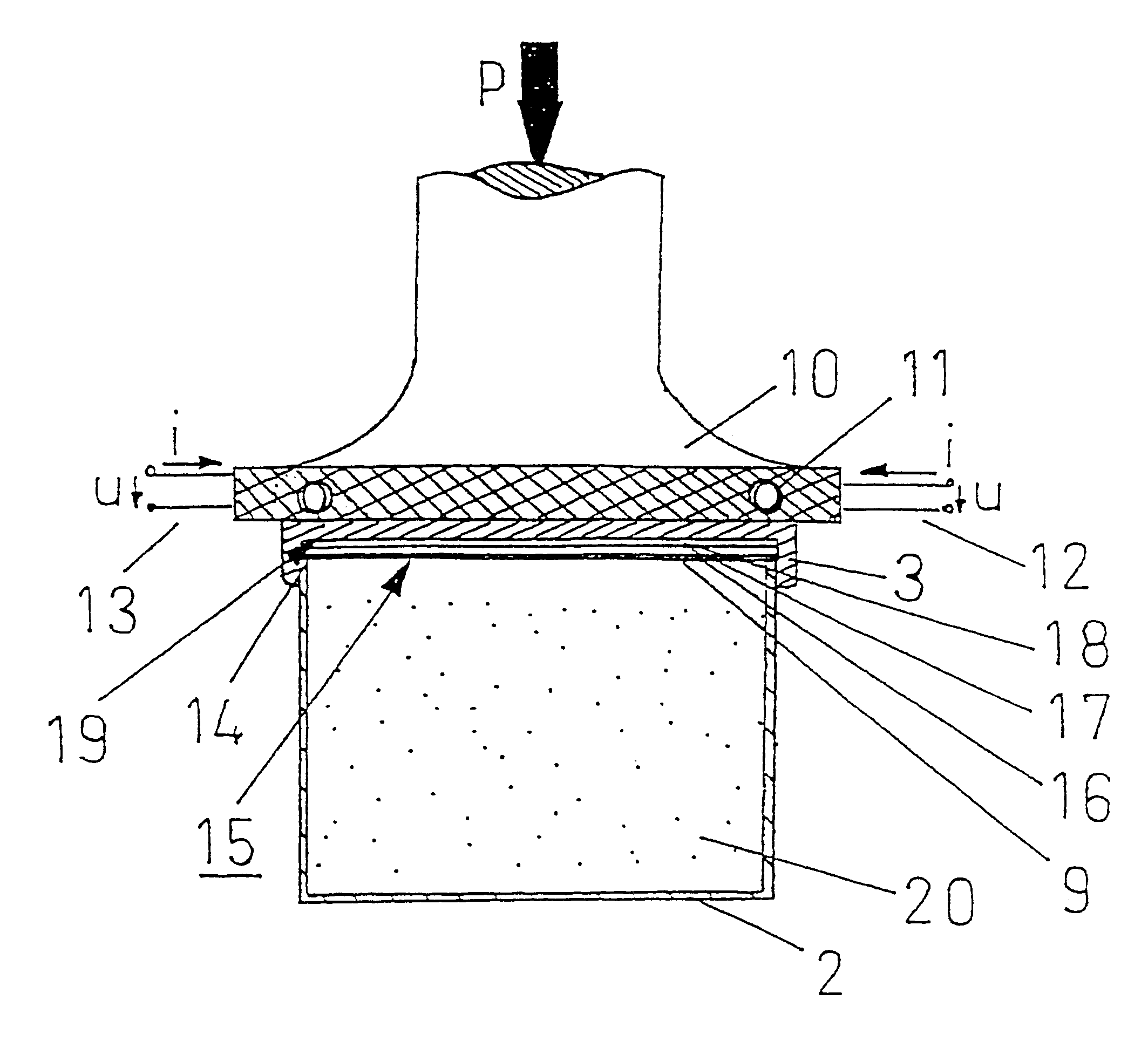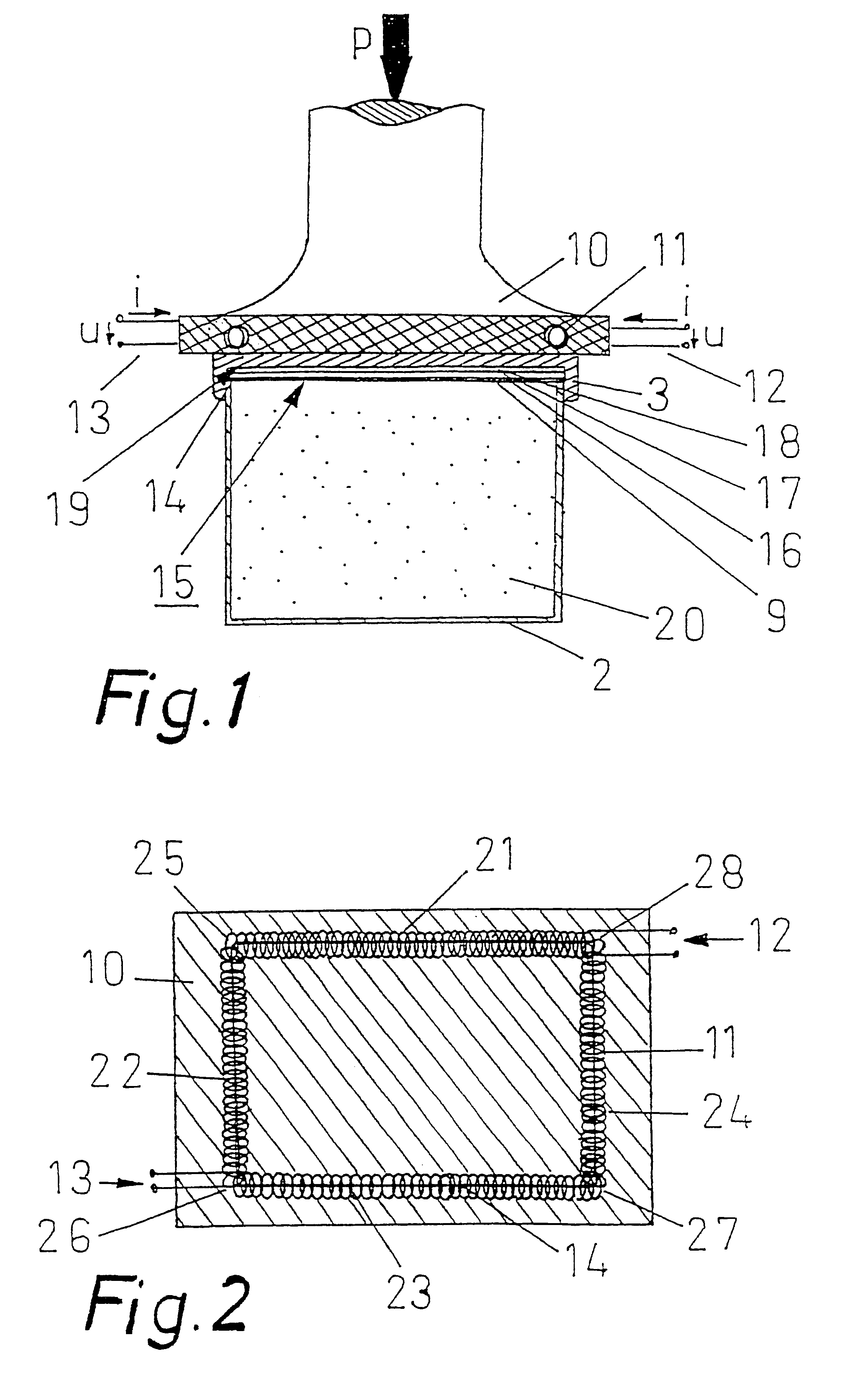Method and device for induction sealing
- Summary
- Abstract
- Description
- Claims
- Application Information
AI Technical Summary
Benefits of technology
Problems solved by technology
Method used
Image
Examples
first embodiment
In FIG. 1 a sectional view through an induction loop 11 according to the invention in a plunger 10 is shown. The plunger 10 is provided to hold an induction loop 11. The induction loop 11 is formed as a dual coil. In this way the disadvantage which arises with induction loops with only one coil in the region of the inlet and outlet for the current, in other words a slight non-homogeneity, is avoided. The inlets and outlets for the current are indicated for the dual coils of the induction loop 11 by the reference numerals 12 and 13.
On the upper edge of the container, at the sealing edge 14 of the container 2, a sealing washer 15 is arranged. The sealing washer 15 has three layers. Adjoining the upper edge of the container 2 a sealing layer 9 is provided, and over this a metal foil 16, for example an aluminum foil. The sealing layer 9 preferably covers the whole metal foil 16. During the sealing process it melts in the region of the sealing edge 14, and therefore consists of a sealing...
second embodiment
FIG. 3 shows a plan view of an induction loop according to the invention with container arranged underneath. The container 2 has an octagonal shape, as has its sealing edge 14. This is indicated in FIG. 3 by a line.
The induction loop 38 is arranged above the sealing edge 14 on the lid of the container 2. In contrast to the embodiment according to FIG. 1 or 2, in the embodiment according to FIG. 3 no plunger is provided. The induction loop 38 is provided without a plunger. It is arranged above the container closed with a lid and seals the sealing edge 14 with a sealing washer, without itself exerting any pressure on the lid. The required pressure is already provided by the lid screwed on to the container orifice. A further production of pressure is therefore no longer necessary for the sealing process. Alternatively the induction process can take place completely without pressure. The sealing washer is herein not pressed on to the edge of the seal by the lid.
Nevertheless, its sealing...
PUM
| Property | Measurement | Unit |
|---|---|---|
| Time | aaaaa | aaaaa |
| Pressure | aaaaa | aaaaa |
| Size | aaaaa | aaaaa |
Abstract
Description
Claims
Application Information
 Login to View More
Login to View More - R&D
- Intellectual Property
- Life Sciences
- Materials
- Tech Scout
- Unparalleled Data Quality
- Higher Quality Content
- 60% Fewer Hallucinations
Browse by: Latest US Patents, China's latest patents, Technical Efficacy Thesaurus, Application Domain, Technology Topic, Popular Technical Reports.
© 2025 PatSnap. All rights reserved.Legal|Privacy policy|Modern Slavery Act Transparency Statement|Sitemap|About US| Contact US: help@patsnap.com



